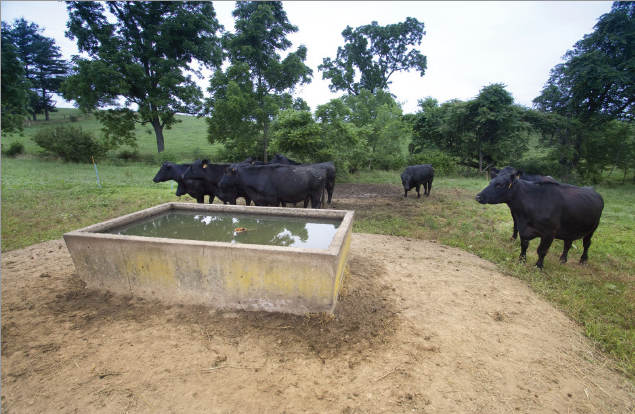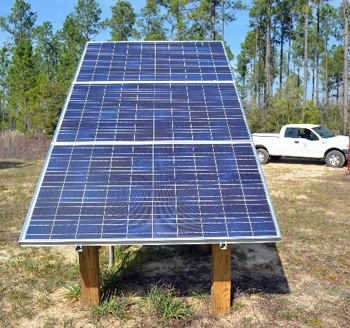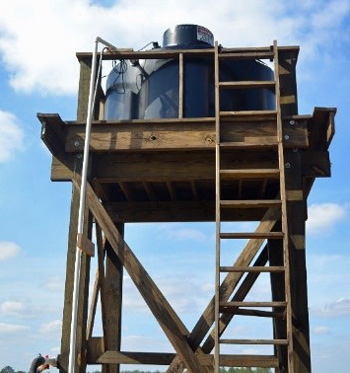By Michael Goodchild

It can be cost-prohibitive to run power lines long distances to provide electricity for pumping water to livestock tanks. One alternative is to install a solar water system.
It can be cost-prohibitive to run power lines long distances to provide electricity for pumping water to livestock tanks. One alternative is to install a solar water system. Solar water pumps can be used to pump water from wells, ponds or creeks. Even if you have to dig a well, it is cheaper than having the local utility company run power long distances. One landowner in our area was quoted $ 48,000 to run electricity a distance of a mile and a half by the local utility company. Besides installation cost there is always a monthly service charge of around $ 30. Also you don’t have to deal with poles and electric lines in your pastures that can be affected by storms.
Terrain and existing vegetation also affect installation cost. Installing a solar powered watering system can range in cost from $ 2,000 – $ 15,000, with the costly if you have to dig a well. Also number of tanks needed for your cattle operation with herd size and acres serviced being important factors. The NRCS (Natural Resource Conservation Service) has cost-share funds available through the EQUIP program to offset some of the cost along with the technical assistance to help design your system. The companies that sell the equipment are also be able to assist with the design of a system.

Some may ask, “What happens if it is cloudy for several days?” To deal with this problem, use extra large livestock tanks, or an above ground holding tank like the one pictured to the right. The goal is to have a 3-4 day water supply at all times. Solar panels will produce some electricity on cloudy days, if clouds aren’t too thick. Other benefits of pumping water from ponds or creeks to water tanks include: reduced erosion, less bank damage, and cleaner water from reduction of animal waste.
